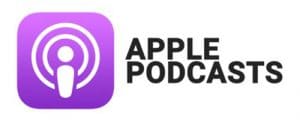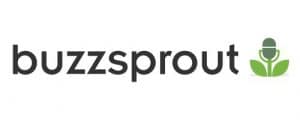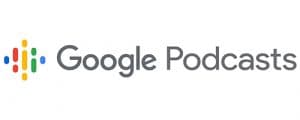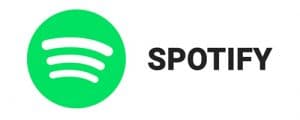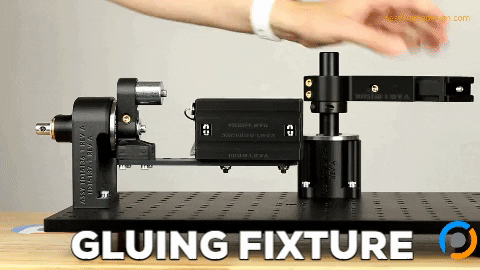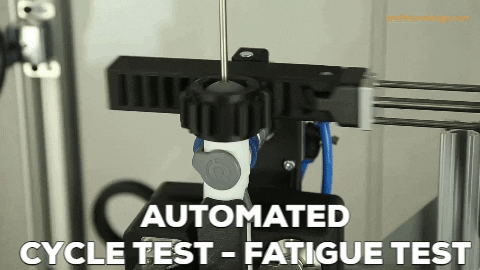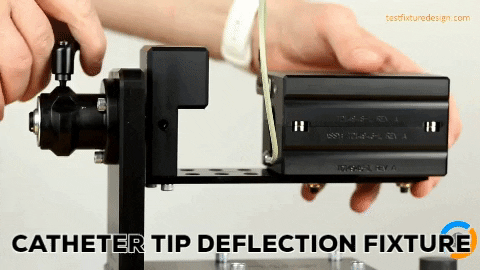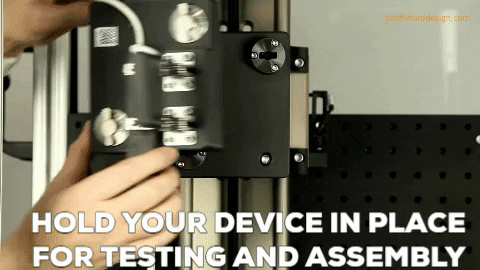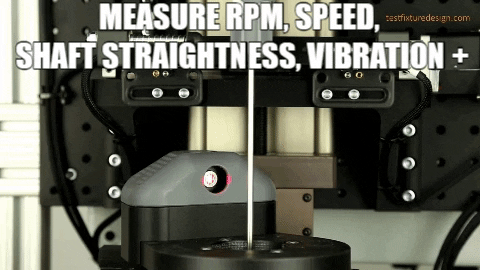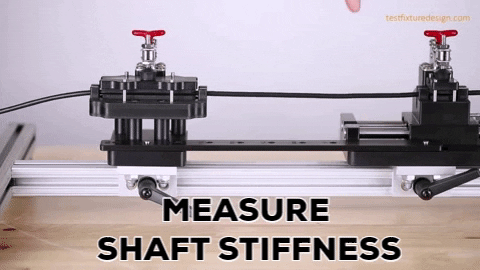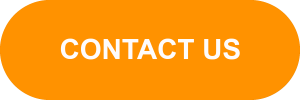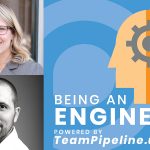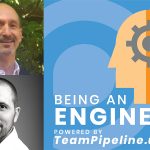Callye Keen | A Coach for Entrepreneurs who Want to Launch Tangible Products to the Marketplace
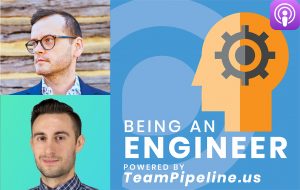
Who is Callye Keen?
Callye Keen helps physical product companies grow through strategy, design, as well as manufacturing in his company, RedBlueCollective.
In this episode, Callye shares with us two golden nuggets; Golden nugget #1: Train your eye to see opportunity by starting something. Golden nugget #2: To be the best engineer, work at a machine shop or a manufacturing company for at least a summer.
Two books for technical people to read:
“Story Brand” by Donald Miller
“Expert Secrets” by Russell Brunson
Cally’s podcast, “End Hype”: https://www.redbluecollective.com/blog/
Interviewed by Rafael Testai
EXPAND TO VIEW EPISODE TRANSCRIPTION
SUMMARY KEYWORDS
product, work, entrepreneur, business, b2b, sell, manufacturing company, launch, books, market, people, engineer, understand, side hustle, company, create, coaching, coach, podcast, mechanical engineers
SPEAKERS
Callye Keen, Rafael Testai, Aaron Moncur
Aaron Moncur 00:00
The Being an Engineer podcast is a repository for industry knowledge and a tool through which engineers learn about and connect with relevant companies, technologies, people, resources and opportunities. Enjoy the show.
Rafael Testai 00:29
Welcome to the Being an Engineer show. This is Rafael Testai and have Callye Keen here with me, Callye, who specializes in helping entrepreneurs bring physical products to the market. But it’s much more thorough than that. So Callye, you want to go ahead and explain to us what is it that you do in about two or three minutes?
Callye Keen 00:49
Sure. So I grew up in the manufacturing business, I’ve been doing product development for almost 15 years, about 14 years there. And I’ve built hundreds of products for companies of all sizes. So from single person entrepreneurs, high growth startups, fortune 100, companies, government entities, and I really enjoy seeing an idea come to life, you know, be able to hold that idea in your hand. And I formed a new company, red blue collective, about five years ago, to specifically focus on entrepreneurs and I find that work more fulfilling, I find it you get to know the person, you get to know what they’re about. And it’s more human than, say, working for a large aerospace company. But so I have the two companies, which have different focuses. But But yeah, I will read to the collective, I wrap everything that I do in business strategy, because one of the most common mistakes or difficulties that people have is actually getting the product to market to be purchased, not so much just the development or the manufacturing. So
Rafael Testai 02:05
Let’s see. So why don’t you tell us about one of the success stories that you have from an entrepreneur or a company that approached you with an idea for a product and where they’re now?
Callye Keen 02:17
Sure, I actually just got off a call with one of my clients, the Most Curls. So we’ve been working together for a while she graduated from an incubator that I ran a few years ago. And we’ve been working together and we just, she just was able to officially announce getting investment from Blackstar fund the other day, and we’re working on some other deals, but we’ve, we bootstrapped the product to that to that point. And by selling other products into the market, she was able to attract an amazing team. She was able to win an award through glossier, which is a big deal and the beauty market, she was accepted into the support accelerator, and has attracted pretty great group of advisors, really interesting people. So you know, great, great story. And non technical person, lawyer by trade Don Meyers. So she’s, she’s built that using the methodologies that we talked about. Go into a little further but yeah, it’s it’s a great, great success story.
Rafael Testai 03:27
So if I understand correctly, you’re like, please correct me if I’m mistaken. But you’re like a coach for entrepreneurs that want to launch tangible products. Is that right?
Callye Keen 03:37
That is precisely correct. Yep. I coach, product based companies to launch and grow. So some people might come into me, right now, I’m working with a number of e commerce companies and they’ve they’ve created a product and they’re a one year, maybe a little over under into their journey, and they’re not really seeing the success that they’d like. So I would come in, and I would use my knowledge of product development. And I go to market strategies, layer that on top of what they’re doing to enhance and increase the revenue and then start putting more products into their portfolio. So that’s one section. And then I do get to deal with people that are that just are starting. But, you know, starting is difficult. So if you just have an idea, I generally direct somebody to like a free state funded program to go through lean startup or maker space to kind of Tinker through the initial prototypes. So I’m more I’m more on the business growth, the serious entrepreneur side of things, but yeah..
Rafael Testai 04:49
And you also have a podcast called End Hype, if I’m not mistaken. Right? That’s right. I’ve been I’ve been listening to your podcast, I listened to at least six episodes, one of my favorite one is with Dan Slansky. He’s a mechanical design engineer who’s also been on the show, system, small community, and we’re all getting to know each other. So I highly recommend that you guys check out the End Hype podcast, all links are gonna be in the description of the show notes. But why? Why would entrepreneurs necessarily need a coach to guide them through this project, launching the product to the marketplace?
Callye Keen 05:27
Sure. I think everybody needs a coach. That’s just, that’s my opinion, I have coaches, I have mentors. You growing up, you hear this phrase over and over again, like, there’s no shortcuts in life. It’s just this. And there’s no shortcuts in quality. There’s no shortcuts in doing the work. But there is shortcuts and knowing the right path to do something. And that’s what mentors and coaches allow you to do. So if you would like to figure it out, and get that experience yourself, that’s perfectly fine. And there’s a group of people that are like that, and they can become very successful. But if you would like to reduce the time and the pain to make that happen, I’ve developed hundreds of products, and I sell my own products, pretty successfully every year I have for more than a decade. So you can shortcut that time. And you have access to my network. So people often ask questions like, Where should I get my product fulfillment done? Where should I get injection molding done? Where do you know a person that does this. And so if you’re working with an experienced coach, those problems, they go away, because you could just use somebody that I would use, you’ll still have the difficulty in figuring it out and doing the work. But the connection is, I can give you the play, you have to run in for a touchdown. That’s what a coach will do for you.
Rafael Testai 06:59
I love that analogy. That’s really good. Super well coming out too. So good analogy.
Callye Keen 07:04
There you go. I To be fair, my other company I act as a consultant, I literally do it for you. But that is outside of the that’s a that’s outside of the the reach of most entrepreneurs that would just be starting. That’s a it’s a business business service, you know, that engagement would be into the six figures, and be into the six or seven figures per year. So when talking about coaching, he just laying out the groundwork and giving you the roadmap and working with you each week, it’s less of an ask, but you get all of the resources, and you get all the knowledge. Alright, so this split between coaching and consulting is pretty dramatic, you get some high level results, but you still have to do it.
Rafael Testai 07:54
Absolutely. Most people that listen to this podcast are entertainers. We’re just a podcast called being an engineer, or they’re on their way to becoming engineers, they tend to be more rather technical people who listen to our podcast. So they may not be that I don’t think they are the typical entrepreneur who wants to launch a product, who doesn’t really know about manufacturing processes, like our audience has a good understanding of that most most of them do. So my question is more targeted to our listeners. And it would be what we’re someone that has an understanding of manufacturing processes, understands how to use CAD is certified in SolidWorks. What are some of their most common mistakes when they want to launch a product to the marketplace?
Callye Keen 08:38
Okay, so you have to understand that a product is a strategy for a moment in time, right? The product is not the business and this is very difficult for technical people to understand is that the business is a system of different elements. And like, you need to have someone if that’s not, it could be yourself if you develop this, but it’s going to run the business that’s going to sell the product that understands the marketing and sales component, and the operations component of a business. So a lot of technical people, they get really far in their opinion down the road with developing the product. So they’ll they’ll build prototypes, and I’ll look at it I’ll say how many people are in your list? How many people want to buy this product? How many people have you talked to how are you going to get this thing to market? And we have no answers for that. But they’re they’re very focused on the idea. So I am the product guy, right? And you understand that I’m saying this out of love because I want my products to flourish. I want them to go into the market and be successful for somebody else to think that they’re cool. So objective Li cool, not me subjectively thinking that they’re good. Right. So a business does that. The market does that. So technical people They get obsessed with their ideas. And they’re largely irrelevant to the business success, the best ideas fail every single day in the market. Right? So it’s, it’s really more about a harmony between the business and the product versus just an idea.
Rafael Testai 10:23
What would you say are maybe two books or two resources that technical people that can mechanical engineer should read or should look into, to better train themselves and to get ready to launch a product to the marketplace?
Callye Keen 10:38
That’s great. Um, probably, probably a lot of books. But what I want people to understand is why, why someone buys, right, and they they buy, even a novelty product for a human need. And for transformational change. And if you understand what the story of that changes, you’ll see that your product fits as a facilitator in that change. Right? It’s achieving a result. So when when we can speak to that story, because we want to talk to people we can understand our messaging. But I, I’m really into, into story selling right now. And we just I would, I would have everyone go look at Donald Miller’s book, brand story. And it’s that when we talk about, or it’s a story brand, now let’s get that reverse because there’s a there’s another thing called brand story, the story brand book, Donald Miller. It has this highlight that hero’s journey of what our customer is trying to achieve. And it doesn’t matter if it’s a highly technical product, or a highly novel product, people are buying to fulfill a need in the market. So I want people to go out and I want them to read some business books. Now the reason one of the reasons why my podcast is called in height is that a lot of business books are just 200 pages of fluff and they should be five pages long. So that’s why I’m kind of hesitant to, to like, advise a specific book because there’s gems in all of these books that people read. But all in all, I think we they need to understand how marketing works, I would read if I had to show somebody how to market a product or market themselves in a single book, I’d have them read expert secrets by Russell Brunson. But I want technical people to read books that are on marketing, so they can understand connecting with people telling the story of the solution, how to actually get it into in front of people and get people to want to purchase it is really the most important element.
Rafael Testai 13:09
Thank you so much for those golden nuggets. I agree with you in the length of books. This is I don’t think something I ever discuss with anyone, any of my friends or anyone but I always thought to myself, why aren’t some some business books I like to read nonfiction or books or books that usually helped me become better at something technical or business? And ask myself, why are some of these books so long? Can they just get their point across in like five pages? That has happened to me before?
Callye Keen 13:35
Yeah, for sure, they need to be a certain length to get onto the to like get on the shelves or to justify them being 1495 or whatever. But there, there are a couple books and I put expert secrets in that category that actually need to be that like, there’s a lot of powerful information in there. But if that books almost like an accumulation of a lot of other books. You know, for the most part, I’ll agree with you. I’ve read hundreds of business books, and they’re mostly just they’re not great. Like Seth Godin is the king of all marketing. And his books are super short, but he has a lot of credibility in the space. And he says that he reads business books until he gets the joke, and then he puts it down. He just
Rafael Testai 14:23
one thing that I found and we’re touching on this subject already, maybe there’s no more to add to it. But before we move on to the next topic, I found that whenever doing maybe contract work for people, I need some mechanical design work done. Or maybe in your shoes though, you want to help people launch their ideas to market. In addition to reading a little bit more about marketing, what else could maybe some mechanical engineers then want to launch a product to market do or read and educate themselves on before they contact you so you don’t have to be like a broken record and repeat the same thing over and over. Again.
Callye Keen 15:01
Yeah, so that is interesting. What I really like and what is the ultimate combination is somebody that has technical skills, they know where they show up their zone of genius. So my my thing is mechanical, I don’t even bother trying to figure out anything electrical, or programming firmware, I used to do desktop development and web development, and I can code. But is that the best use of my time on a team developing a product? Probably not. There’s there’s very few people that have more knowledge of manufacturing than than I do as far as, especially in the product development kind of zone. So like, I know where my value is. And I tried to team to get those other pieces. So what I look for in the like, the golden skill set would be an entrepreneur, based engineer, somebody that has tried to sell something before, I don’t care if they’ve sold white label products on Shopify page, or they’ve done some flavor of FBA, but they have, they’ve tasted what being an entrepreneur and trying to sell something as like, because as we taste things, we can say like, I’m pretty good about that. Or I’m just gonna stay conversationally competent at this. And then when they team they can respect the person that’s on their team that they’ve hired, or they partnered with, instead of just saying, Oh, that’s easy. That’s the easy piece. So when people come to me, that’s what I look for, I look for somebody that has tried a couple different things, but not in the technical space, because technical acumen is almost never the problem in the business. And I can pretty much get anything made. So somebody should own the product, technically inside the business, but it is not, has bears no relevance to the success of the company? that’s just, that’s just the thing aside?
Rafael Testai 17:08
And what what’s it typically like, working with you in this sense? Would it be like a weekly call? Do you give people like a worksheet of to do items? How does that work? Yeah,
Callye Keen 17:21
So I just released a group coaching course. It’s called Misfit Brand Academy. And that’s geared towards people that have, they’ve created a product, they put it out in the market, and the sales are kind of not where they expected to be. So they can go through my framework and my thesis for rapidly increasing revenue, and then hopefully get to a place where they would go to my one on one coaching, but my one on one coaching, follows the regular collective framework. And I use that as an auditing tool. But is generally it’s still a call a week. And you get, you get a blow by blow, let’s do these things. And a lot of those a lot of those phases or actions, they’re going to inform us about the specific actions we’re going to do in the future. But what I what I stick to so group coaching, have the modules. And then we do a live q&a. So I can give context because I, I, I believe that information is cheap. But people pay for accountability. They pay for access, and they pay for context. And in that group setting, people ask the same questions over and over and over again. So there’s a lot of value in just hearing what other people’s questions have. Right. But moving from there, it’s a one on one coaching. So just be open. It’s a weekly session is where it starts.
Rafael Testai 18:53
People pay for accountability, accessing content. Did I say that? Right?
Callye Keen 18:58
Context.
Rafael Testai 18:59
Context? accountability, someone that’s going to help them stay on track? Yep. context. And what does that mean?
Callye Keen 19:08
So if I, if I give you a book, right, you can read it, that’s information. Right? If you start applying it, it can become knowledge and experience, but what you’re accessing for me is like I’ve already done it, right? So when you ask a question, like, Hey, you said to run an ad like this, and I can say, well, I can put it into the context of your business, your specific situation where you are in the evolution of your company, and relevant, I can make the information relevant to where you are and what you’re doing versus just saying, here’s an awesome strategy. So, like, I’ll give you an example is I’m very bullish on on joint venture partnerships for collaborative launches. So like launching limited additions of products into the space where it said of using influencer marketing, we do co branded launches, right? And I could just tell you that it’s, it’s immediately fairly intuitive what I’m talking about. But then to go into your business and say, This is how we look at the market, we look at the competition, and we look at the journey, and we pick things that would be good brands to work with. And this is how we structure a pitch. And this is what we pitch. And this is why we pitch it. Like that’s context. Right? So there’s a lot of people out there charging a lot of money for tactics. Right, so the, there’s people selling $5,000 courses on how to set up a Shopify page. And you can just go to Udemy and pay $19 and get a better course. But it won’t teach you the why of setting up a Udemy. Or like, what goes on the page and why you structure the page that way, or even what to sell and why to sell it. It’s just, it’s just tactics, why isn’t there a course on why there is my course? No, but um, but to be more serious is like, that’s what coaching provides, generally, what coaching is supposed to provide as we go into why so I’ll give you an example is working with me, it doesn’t matter at what level somebody comes in, is that I asked why we start with the end in mind. So that’s a Stephen Covey thing, you know, habits of successful people, we look at what your goal is, because some people start companies for no reason. They just think that they want to try being an entrepreneur. But in reality, like we start businesses, because we want to improve our life, right? We want to achieve a certain financial goal, we want our life to look a certain way. But most people don’t ask what that should be. Right? Like, they start making decisions about developing an idea, but they don’t ask themselves why. And without having a clear purpose and goal, it’s hard to reverse engineer what successes, right? How much money like, Are you trying to create this business? So it will get investment? Or are you trying to create a $10 million business that you can sell? Are you trying to create an heirloom business? Do you like working with other people? Do you want to have a building? Do you want to have a virtual network organization with no employees? Like, what is your ideal life look like? People just build businesses for no reason. And they built products for no reason. So we always have to understand why we’re doing something and then make our decisions in the context of that. So that’s, that’s where an experienced coach will will help you. Because we want we want everything to have some coherence, right, we want our actions to be congruent with our goals. And in general, people just do things to try it. And then they have to find meaning later. But it’s why people create businesses that they hate, right? It’s why they serve as customers that annoyed them. That’s why they have partners that end up breaking, you know, breaking it off with them. So
Rafael Testai 23:07
I like your thoughtful approach you come across as a person that really thought things through and knows why they’re doing what they’re doing. This is cool. I appreciate that. I was thinking what is we have a lot of listeners that are students that are mechanical engineering students, and maybe hesitant or may flat out just not have the funds to hire someone to work one on one with yet, maybe we have to graduate they may be able to so what can they do to get started on this journey?
Callye Keen 23:36
I would, I would love to see, people look at entrepreneurial ways of making money. I’d like to see people that have a side hustle, figure it out. I’ve always had a side hustle from building websites 20 years ago to club promoter to, I don’t know, I could name I could name 50 different things that I’ve tried successfully or unsuccessfully to make additional money. And all of those skills are things that I draw on today. Right? So if somebody is just coming out of school, you learned a lot of things that you’re not going to use and you learn some things about engineering, where you that you have to learn some other mindset. You know, being self motivated is a big is a big component, right? If you’re only semi self motivated in school, but somebody is telling you what to do. If I say go out and create a side hustle and look to see if you can make 2000 extra dollars a month. You have to be self motivated to do that. And if you can learn that level of discipline, and like train your eye to see opportunities, you will be successful in business it is an inevitability. So that’s my advice to people like I don’t care if they I don’t even care if they started dropshipping, which I don’t think is very profitable, but you’d learn Facebook ads and you learn how to find, find products, you would learn things, you know, action creates opportunities. So like as we are in motion, we start seeing more of what’s available to us. If we just sit there and wait and say, Oh, if I had, if I had more money, I would hire somebody like Callye and all my problems would be solved. It absolutely is not the case, you would just have me telling you to get up off your butt and do stuff. That’s the only difference.
Rafael Testai 25:36
Because you’re absolutely, I can totally relate to everything you said. I’ve always had side hustle, since I can remember. When I first came to United States, when I was 13, I used to cut my neighbor’s flowers for like $10 an hour back then. And that was a lot of money. They love me for like, I know, two hours a week or something. But it was it was money. And then in college, I started my own business, selling things online. And I learned how like everything they just said basically how to work websites, how to sell online Shopify, and then I fell in love with mechanical engineering down the road. Thank you. I am. But yeah, having a hustle that makes you money. That’s a that’s a good way to start. Absolutely. So join us now I was gonna ask you. We’ve talked about predominantly about entrepreneur to consumer. But what about b2b, we’re a business and we want to create a tangible product and sell it to other businesses. What’s the difference between the approach?
Callye Keen 26:36
I love B2B. So this, you get deals that are have bigger chunks to them, right? So like, the numbers look better? See, it’s, it’s faster to grow on the backs of that. It depends on what you’re trying to do. But with my one company, we sell B2B or B2G. And we do we do pretty well. That’s big. business to government. Okay. Yeah. So the, the advantage to selling b2b is that the decision can be slightly more logical, everyone buys on emotion at some level. But if you can, if you can give the context of value to that business, like if you’re selling a product that solves a $50,000 problem, for $5,000, they’re going to buy, right, if you can show that it will make them $50,000, and it costs $5,000, they will likely buy it, right. And that I like about b2b. Right? The downside of b2b is that the cycle times are slower is that generally somebody is not just doing a search, and it doesn’t pop up in the Facebook ad, and then they just buy it, right, they don’t see an Instagram post and then just purchase. And you know, from my background, I’ve been pretty successful on that side of things, as well with direct to consumer launches. And that’s the advantage of that is that we can move very quickly. Or we can have we can make five, six plus figures in a day or a couple of hours with a consumer launch. Whereas like a b2b launch my most successful product. I think that the customer that I initially pitched it to didn’t buy for three years, they buy a million dollars worth of it a year. But like somebody else started buying it before they did it slow. It’s just a slow process. But I didn’t have to make a whole lot of them and have them sit in a warehouse. I just pitched it. And that’s another advantage to to b2b is you can create ideas, secure them, pitch them, and then there’s the opportunity to like, build a business unit around that, right. Yeah, I mean, the numbers look really good. So I would suggest that if somebody is looking at creating a product, like consumer facing product, and then they’re selling into retail or distribution, or they want to do like a deal with another business, so they want to have a B to B to C element to their business. We can break that down. But understand that everybody is going to look for the same thing. They’re going to look for market acceptance and market traction. So they’re going to want to see do customers buy it before they hop on? As like Walgreens, they’re going to want to see if people actually make this What’s your track record? What’s your team’s track record? What’s your financials? Like? What’s the margins is their margin for them? Like, can you have for any kind of slotting fee or like how much inventory Can you hold? Can you afford buybacks? Like there’s tons of questions. So like you have to understand that flexity that you’ll get into With some business to business sales, and some of them will still require direct consumer sales to demonstrate competence. So
Rafael Testai 30:09
Perfect. That seems like a good place for a quick pause to share with our listeners, that teampipeline.us is where you can learn more about how we help medical device engineering teams who need turnkey automated equipment or custom test fixtures to assemble, inspect, characterize or perform verification or validation testing on their devices. Going back to our discussing, I really like that you mentioned that b2b seems to be more of a methodical or more logical sales approach. It’s not as emotional as the directly to consumer maybe selling like a an iPhone to a consumer. I never thought about it that way. So logically sharing numbers, spreadsheets, that’s why I may do this sale, but it’s also emotional everywhere. There’s emotional in that sale process. I wanted to ask you, is there something that we may have not discussed in this call that in this podcast that you think would be worthwhile to discuss to share with the listeners that we haven’t yet?
Callye Keen 31:13
So I’m going to tell every, since you said you have a lot of technical people, you might have some engineers out there, I’ll tell you the the secret to becoming the best engineer, right to unlock? Oh, you got my interest right now. So so most engineers have they have a cursory understanding of manufacturing, right? If you can, if you can spend a summer and go work at a machine shop, right? Go work in a manufacturing company. The level of knowledge that you you’ll get about the actual application of everything that you’re learning will put you far beyond your peers. Right. So every unbelievable engineer that I’ve met, they have either worked in a manufacturing company, they’ve owned a manufacturing company, or some flavor of that, right. So it’s such an edge to know what the end outcome and the limitations of those processes are. That I mean, I’ll tell you that every day, people that have one or two decades of experience in engineering are asking me manufacturing questions. So if you want to have the edge, right, understand what you’re doing, what the end goal is, and it’s to make something great. So understanding those processes will give you tremendous power.
Rafael Testai 32:39
I’m gonna have to ask you a couple follow up questions. Now. That was such a good golden nugget. Thank you. I’m actually taking notes right now. So we’d say work a summer at either a machine shop or a manufacturing company, in terms of the the length should one work at maybe sounds like an internship or maybe like a part time job. But how do you know that you weren’t long enough at that place to acquire good enough skills to fulfill this bucket list? Like is it three months?
Callye Keen 33:12
When you get a limited time, but I’m going to the reason that I’m taking on, like a high mix environment is most likely you’ve seen three drawings or 10 drawings, proper drawings in your collegiate career or young engineering career. I grew up filing prints and inspecting parts in high school, I probably saw more prints than a normal engineer with seeing their life before I turned 18. Right. And most engineers put out the most terrible drawings, ever, or they don’t even know why drawings exist, and their parts consistently come out wrong. And they’re frustrated by the experience, because they don’t know anything about manufacturing. So I feel like even touring a plant and looking at how the process works, is important. I had an engineer the other day that didn’t understand you can’t mission. They didn’t know how it millwork. They didn’t know what a CNC mill was, personally, they have a degree in engineering. And they have years and years of experience as an engineer designing machine parts. They didn’t even know what mill was they couldn’t identify it in my facility. So I implore you at least two or one but like spend some time. And if you spend some time, you’ll get to look at a lot of drawings. And you’ll get to look at the results of that. Maybe get to use some measurement tools or gets pressing buttons or something but just any amount of time really just any any because it’s such a differentiator in the market. Most people have never been to a manufacturing facility. And a lot of engineers never will be at a manufacturing facility for more than just like a 15 minute tour. So
Rafael Testai 35:00
That’s, that’s an amazing tip. If you guys listening if that if you found that useful, go ahead and give your podcast five stars, we need more apple and more critiques and ratings. I wanted to dive a little bit deeper into that we use a manufacturing company or manufacturing facility. What does that mean?
Callye Keen 35:19
Yeah, so you can go look around, and I don’t, you know, depending on your area, but there, there probably is a machine shop, right? Or a fabrication shop or in the case of us were like a little bit of everything. It could be an injection molding place, or we would say emfs electronics manufacturing company, somebody that has a pcba lines and assembly. There’s lots of flavors of that. But go, you know, if you think that you’re into a certain type of product, go see where that product gets made, what it looks like, and yeah, so I’d say at least go look at a machine shop and maybe an LMS, if you can,
Rafael Testai 36:01
Yeah, the material part is clear. But when it comes to a manufacturing company, would maybe like an assembly line also?
Callye Keen 36:10
Yeah, that’d be amazing. Yeah. Okay. There’s a company down the street. They make cookies, right. And like, I think that’s fascinating how they design the equipment, they make it and they have mechanical engineers that design all the automation. And there’s a company that locally that they just design machines like that, and go there and see the machines that they’re designing and building and you’re like, wow, this is crazy. The limits of that kind of industrial mechatronics. Very cool.
Rafael Testai 36:39
That’s a wonderful golden nugget, I made a note. And I wanted to thank you so much, Callye, if there’s a way that people can reach you, what would be your preferred method?
Callye Keen 36:50
I’m on a lot of the social platforms but I would really appreciate if people when checked out and I podcast and similar to what what you said, and you can just leave me a review. You know, four star, five star or ten star if you got it.
Rafael Testai 37:07
Links to all of Callye’s social media and the podcast will be in the show notes below. Callye, thank you so much for joining us. Until next time, appreciate it.
Aaron Moncur 37:20
I’m Aaron Moncur, founder of Pipeline Design and Engineering. If you liked what you heard today, please leave us a positive review. It really helps other people find the show. To learn how your engineering team can leverage our team’s expertise in developing turnkey custom test fixtures, automated equipment and product design, visit us at testfixturedesign.com. Thanks for listening.
We hope you enjoyed this episode of the Being an Engineer Podcast.
Help us rank as the #1 engineering podcast on Apple and Spotify by leaving a review for us.
Find us under the category: mechanical engineering podcast on Apple Podcasts.
Being an Engineer podcast is a go-to resource and podcast for engineering students on Spotify, too.
Aaron Moncur and Rafael Testai love hearing from their listeners, so feel free to email us, connect on Facebook, Twitter, Instagram, and subscribe on Apple Podcast and Spotify!
About Being An Engineer
The Being An Engineer podcast is brought to you by Pipeline Design & Engineering. Pipeline partners with medical & other device engineering teams who need turnkey equipment such as cycle test machines, custom test fixtures, automation equipment, assembly jigs, inspection stations and more. You can find us on the web at www.teampipeline.us.
You’ve read this far! Therefore, it’s time to turn your headphones up and listen now to this episode to learn all these. Don’t forget to tell your friends who might like this too!

